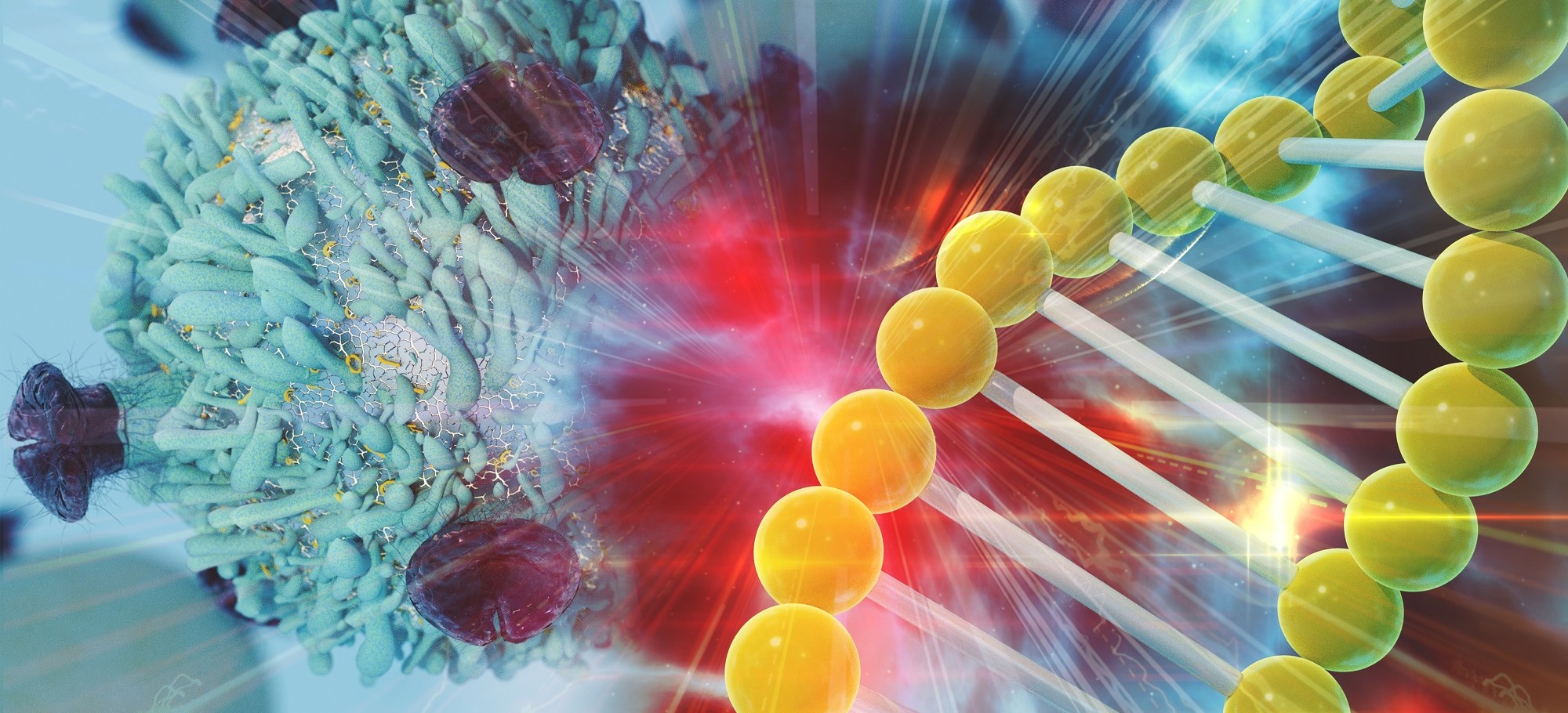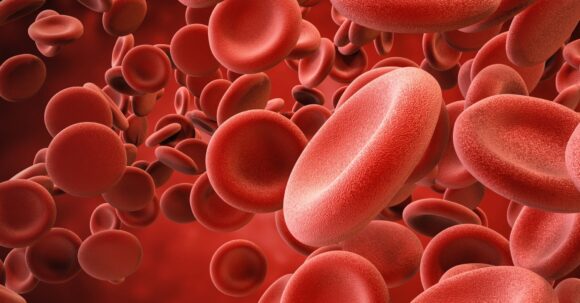
Targeted Treatments and Immunotherapy for Solid Tumours: Demystifying the Science – February 2025
- This event has passed.
Start date: 18 February, 2025. 9:30 am - 12:30 pm

This course gives cancer nurses and trial staff the knowledge and confidence to discuss a wide range of targeted cancer treatments and immunotherapies with patients and colleagues.
Overview
This course focuses on cancer biology and the science behind licensed treatments for solid tumours, including monoclonal antibodies, small molecule kinase inhibitors, and immunotherapies.
Over the course of two mornings, Dr Elaine Vickers – a leading independent educator on the science of new cancer treatments – will guide you through the scientific concepts that underpin many of the most used targeted cancer treatments and immunotherapies for solid tumours.
Treatments discussed include those that target cell communication pathways (e.g. EGFR and HER2-targeted treatments) and immune checkpoint inhibitors. Elaine also describes various molecular features of cancer that underpin many other new treatments.
Audience
This content is ideal for research nurses, clinical nurse specialists, pharmacists, and clinical trials coordinators. It may also interest other healthcare professionals wanting to improve their understanding of targeted treatments and immunotherapy.
As ever, Elaine will use colourful illustrations and jargon-free explanations to help learners gain a broad understanding of the concepts covered.
Course delivery
The course comprises two morning sessions delivered online via Microsoft Teams as follows:
Session One – Targeted cancer treatments – Tuesday 18 February 2025 09:30am – 12:30pm
Session Two – Cancer immunotherapy – Tuesday 4 March 2024 09:30am – 12:30pm
Session One – Targeted cancer treatments
Tuesday 18 February 2025 – 09:30am – 12:30pm
Over three presentations, Dr Vickers guides us through the scientific concepts underpinning many of the most used targeted cancer treatments. Beginning with the bigger picture – what we can and can’t target – she then describes the mechanisms of action of the two main types of treatment: monoclonal antibodies that target cell surface proteins and small molecules that block kinases.
Many of these treatments target cell communication pathways. Elaine will explain the function of these pathways in healthy cells and their defects in cancer cells. She’ll also describe why blocking these pathways sometimes works and sometimes doesn’t.
Lastly, Elaine turns her attention to other targets and discusses when a targeted therapy or immunotherapy approach is more likely to work.
Targeted cancer treatments – the current landscape
- Describing the ‘Enabling Characteristics’ that allow cancer to develop and the ‘Hallmarks of Cancer Cells’ that drive cancer’s behaviour
- Which can we target, and how can we do it?
- The pros and cons of small molecule inhibitors and monoclonal antibodies
Treatments that target cell communication
- Targeting growth factor receptors such as EGFR, HER2, and MET
- Inhibitors of growth factor receptor fusion proteins: ALK, ROS1, RET, TRKA/B/C
- B-Raf & MEK inhibitors for BRAF-mutated cancers
- The pros and cons of PI3K & mTOR inhibitors
- Progress in targeting Ras proteins
Other targets and treatments
- The mechanism of action and limitations of angiogenesis inhibitors
- PARP inhibitors for cancers with defects in homologous recombination
- CDK inhibitors for hormone-sensitive breast cancer
- When is targeted therapy or immunotherapy the best strategy?
Session 2: Cancer immunotherapy
Tuesday 4 March 2025 – 09:30am – 12:30pm
The focus of this morning is on cancer’s relationship with the immune system and how this knowledge is being used to improve the outlook of people with various solid tumours.
Elaine describes how checkpoint inhibitors boost cancer-fighting T cells. She also highlights some of the lessons learned through the hundreds of clinical trials with checkpoint inhibitors that have taken place over the past decade.
Lastly, Elaine explains how other forms of immunotherapy aim to create an anti-cancer immune response.
An introduction to immunotherapy
- A brief introduction to the immune system
- How cancer’s relationship with the immune system changes over time
- How the immune system can recognise and react to the presence of cancer in the body – the Cancer Immunity Cycle
- Mechanisms of immune evasion by cancer cells
- An overview of immunotherapy approaches and the importance of T cells
- Reasons why immunotherapy sometimes does work and sometimes doesn’t
Immunotherapy with checkpoint inhibitors
- Introduction to checkpoint proteins on T cells
- Describing the mechanism of action of checkpoint inhibitors
- Spot the difference: CTLA-4 and PD-1/P-L1 targeted checkpoint inhibitors
- Some of the many lessons learned from clinical trials with checkpoint inhibitors
Biomarkers and combinations; other forms of immunotherapy
- Describing the use of biomarkers to predict which patients will benefit from checkpoint inhibitors: what have we got and what’s coming?
- Treatment combinations to improve response rates
- Novel checkpoint inhibitors
- A broader look at immunotherapy strategies to create cancer-fighting T cells and the progress made in using them as treatments for solid tumours
- Looking to the future of immunotherapy for solid tumours
Delegates will be given access to recordings of all sessions for three months after completion of the course. If you are unable to attend a session the recording will ensure you can review any content you have missed.
Course Lead

Dr Elaine Vickers, PhD of Science Communicated Ltd has worked as a cancer educator for over twenty years and has previously acted as science communicator for three of the UK’s leading
medical research charities, including four years in the Science Information team at Cancer Research UK.
Elaine is passionate about demystifying the science behind cancer biology and the latest cancer treatments such as kinase inhibitors, monoclonal antibodies and immunotherapies.
She is experienced in teaching people with any level of scientific or medical knowledge from cancer patients through to medical oncologists translating complex and often overwhelming topics into easily digestible and understandable knowledge, using colourful illustrations to explain scientific concepts.
The second edition of her book, A Beginner’s Guide to Targeted Cancer Treatments – commended by the British Medical Association book awards is due out by the end of 2024.
Payment
Payments should where possible be made via the online booking system.
If you request an invoice at the point of booking, invoice payment terms are strictly 30 days from the invoice date or 7 days before the start of the event, or the date specified on the course booking page – whichever date is the earliest.
Cancellation and refunds policy
Should you no longer be able to attend the event on the booked date, please contact the Academy as we may be able to offer an alternative date subject to an admin charge.
Should you still wish to cancel your booking, you or your employer will be charged as per the fees outlined below.
| Timescale | Fee paying course |
| Over 6 weeks | £25 admin charge |
| 2 to 6 weeks | 50% of course fee |
| 0 to 2 weeks | 100% of course fee |
If you do not attend on the day, you will be charged the full cost of the event place.
See our Terms & Conditions and Cancellations & Refunds pages for more details.
Booking
To book a place on this course go to Tickets at the bottom of the page.
At checkout you can make an online card payment or enter a coupon code to make alternative payment arrangements.
Alternative payment arrangements include:
- requesting an invoice (INVOICE),
- The Newcastle upon Tyne Hospitals NHS Foundation Trust staff internal funding (NUTH) – you will need to complete a Trust study leave form.
Please see the Making payments & Coupons sections of the Help and FAQs.


